Teeth that have been weakened or damaged can be shielded and safeguarded with the use of dental crowns- a form of restorative therapy. Such crowns also work wonders in enhancing the outward appearance of a tooth. Crafted out of metal, porcelain, ceramic, or even composite resin, these crowns can prove helpful in addressing certain dental misfortunes- although they come with their set of risks as well.
The process of placing a crown requires preparing the existing tooth by removing a section; this keeps the crown firmly in place and helps it to stay steadfast -over time. Although a necessary measure of caution, this drilling can raise several problems.
Toiling away a fraction of the healthy tooth has the potential to raze its stability, leaving it vulnerable to breakage. And while this may not be an issue when only minimal amounts of tooth tissue must be taken away for basic crown placements, larger crowns may require a greater excavation — which could compromise the tooth to an alarming degree. If the tooth is severely enervated, it may demand extra dental attention in order to fortify it.
Tooth drilling can make even a healthy tooth a safety hazard, as it carries a risk of nerve damage. When the root’s nerve is compromised, an individual may suffer pain and may require additional medical care. This menace becomes especially dire when large crowns are necessary – in this case, significant portions of a healthy tooth must be extracted.
The unfortunate consequence of drilling away some of a healthy tooth’s structure is that it can leave the underlying dentin vulnerable to sensitivity. Any exposure to temperatures, like hot and cold items or air, could potentially cause an uncomfortable feeling and may necessitate additional treatments in order to provide relief.
Ultimately, removing a part of the viable tooth can cause an unevenness to the crown. Removing too much healthy tooth substance can generate excess size, which might induce discomfort, whereas a deficiency may leave the crown undersized and unable to nestle accordingly.
To guarantee the utmost protection from potential complications, following your dentist’s guidelines when prepping a tooth for a crown is essential. Additionally, ensuring that you enlist an experienced and reliable dentist who has the expertise to properly prepare the tooth is of dire importance.
The placement of a dental crown offers robust protection for one’s tooth and can remain reliable for several years with proper dental care and proficient oral hygiene. Still, tedious drilling to insert a crown into a healthy tooth can be associated with potential risks that could prove detrimental. To guarantee a properly contoured crown that will stand the test of time, it is wise to adhere to your dentist’s guidance and pick a certified professional if you are in need of a dental crown.
For those whose dental health demand a crown, they can prove to be a true blessing. Not only can the treatment defend a damaged tooth and augment its resilience, but it may even have the power to enhance its aesthetic. Yet, as with any form of dental upkeep, there can be possible adverse effects that accompany it. These may include the probable detachment or removal of the crown itself, along with possible harm caused to neighbouring healthy teeth during installment.
When it’s time for a patient to receive a dental crown, the dentist has the delicate job of carefully ‘milling’ the tooth and removing only the decay, being extra cautious if there are fillings or adjacent restorations. One misstep could lead to damaging healthy teeth, meaning the drill must be wielded with precision to avoid disastrous results.
In order to protect healthy teeth from potential harm, a dentist must rely on exact tools and processes to make sure the drill does not come in contact with them. A “drill guard” should be put in place onto the drill bit to stop it from veering toward healthy teeth. As an added bonus, this safeguard also helps regulate the temperature of the drill preventing damage to the non-targeted teeth.
Working with a precise, measured speed when drilling is imperative in upholding the health of a patient’s teeth. This deliberate pace provides the dentist ample opportunity to quickly discontinue the drill if the procedure gets too close to the sound tooth, thus helping protect it from harm.
To prevent any adverse effects, the dentist must be mindful of their approach while drilling. For successful and safe outcomes, the angle of the drill bit must be optimal; if it is too upright, it could cause undesired contact with the healthy tooth before the dentist can react and cease the drill. Conversely, if the angle is too shallow, the drill bit could miss its mark and jeopardize the healthy tooth. Furthermore, a drill guard should always be employed and a deliberately slow speed should be employed throughout the process.
Ultimately, the dentist has to be sure to select the suitable drill bit for the work. This must be the exact size and form for the precise tooth in question. If it is too slight, it could slip uncontrollably and inadvertently harm the healthy tooth. Conversely, if it is overly huge, then it could generate too much heat and still harm the sound tooth.
There is always a possibility of affecting adjacent, healthy teeth when drilling for a dental crown; to reduce such an event, the practising dentist should utilise safety techniques and tools, such as a drill guard and a moderate speed setting. In so doing, there is a far greater likelihood of successfully carving around healthy teeth without causing any harm.
Related Product
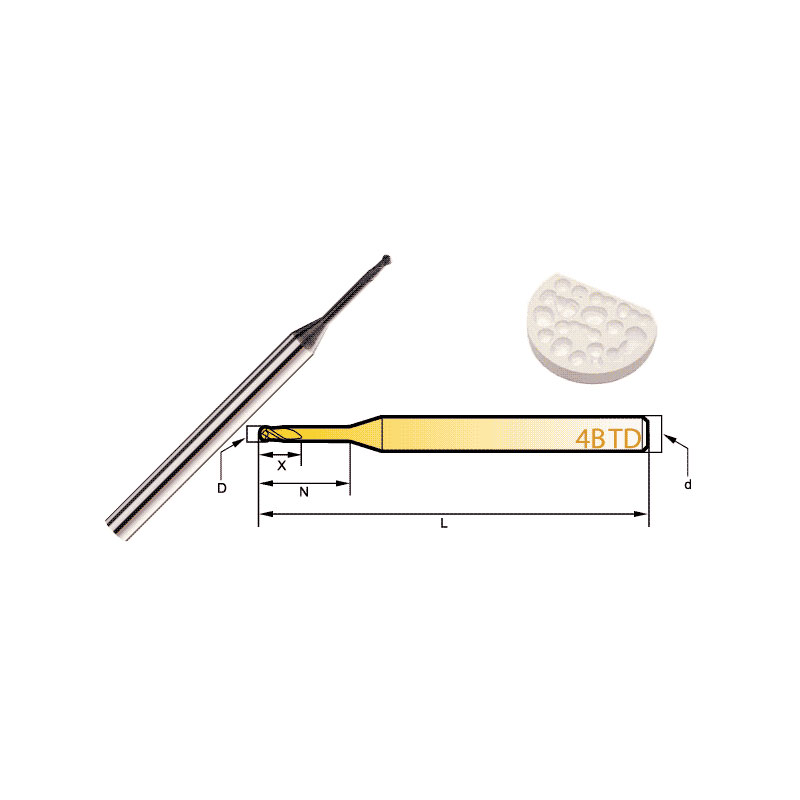
Diamond Bur Ball Round
Product Information Product Name Dental 4-Flute Ball End Mill Brand MSK Model D Number Of BladesZ X N L d 4BTD2060 2 4 6 6 50 3 4BTD2010 2 4 6 10 50 3 4BTD2016 2 4 6 […]
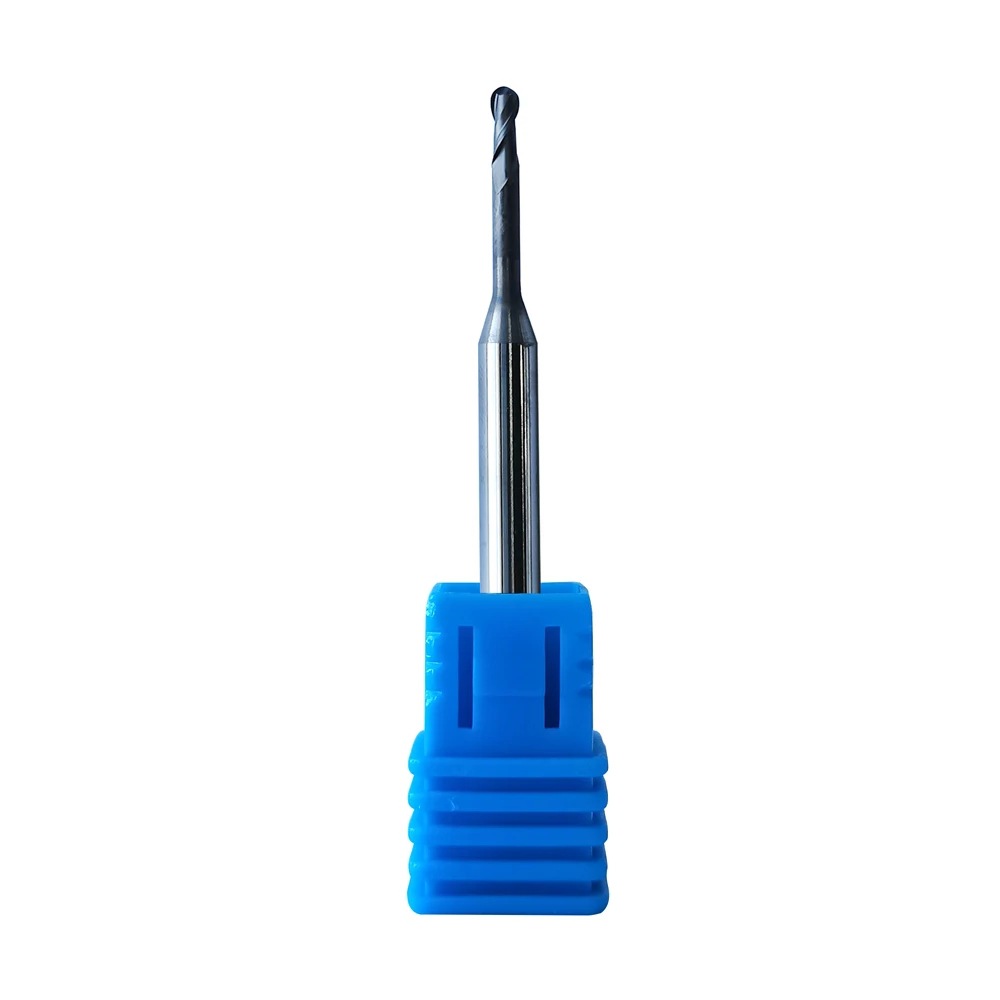
Supply Roland DLC Zirconia Burs
Product Information Origin Tianjing, China Series Dental Bur Brand MSK Cutting Edge Form 2 Blade/3 Blade Ball Diameter (Mm) 0.6, 1, 2 Material Very Fine Grained Cemented Car […]
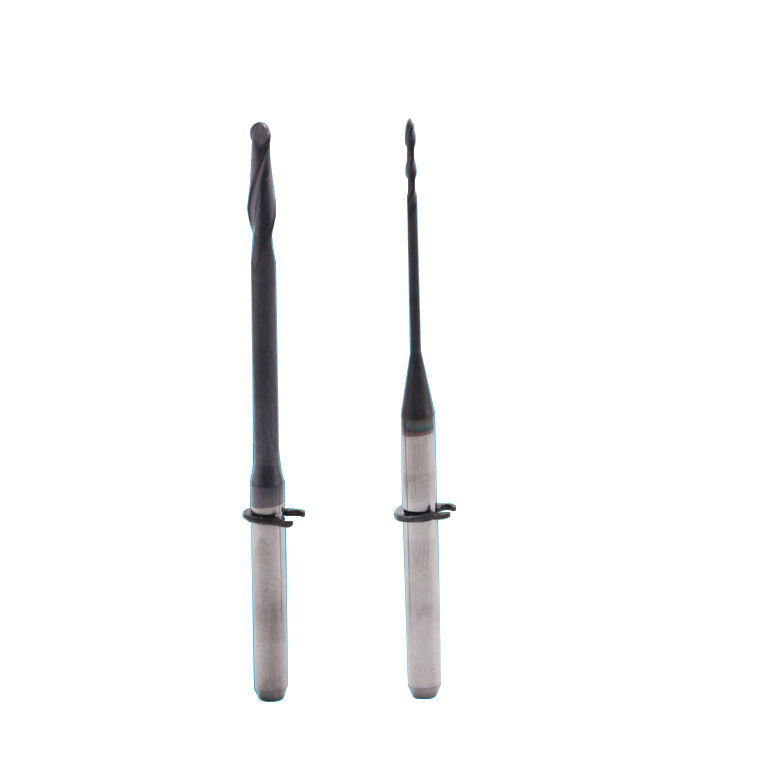
Dental CAD/CAM Milling Burs
Product Information Origin Tianjing, China Material Stainless Steel Brand MSK Applicable Machine Tools A Variety Of Options Custom Processing Yes Whether To Coat No Is It a […]
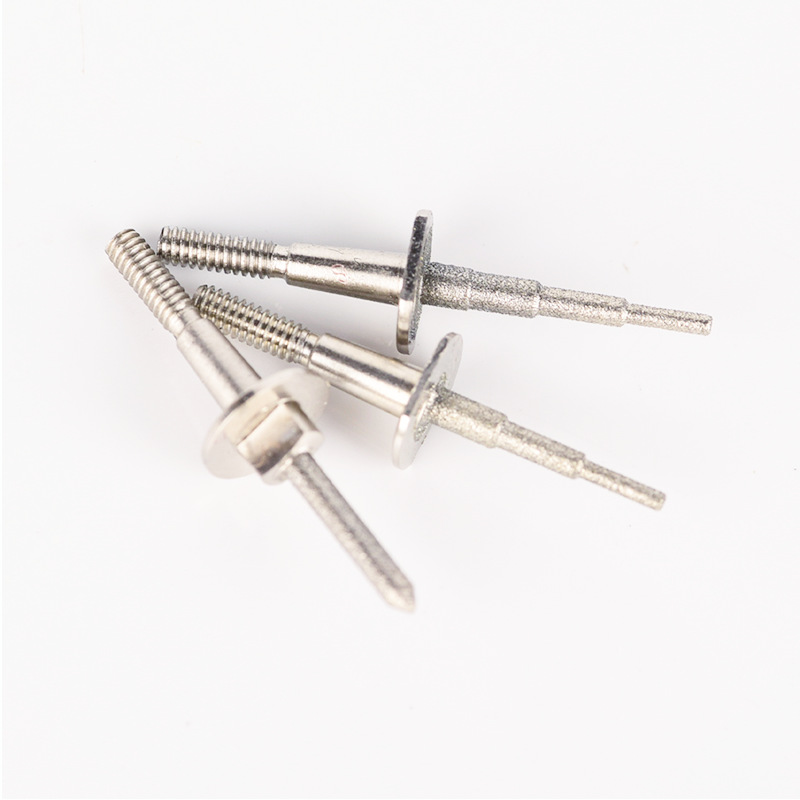
Step Bur Milling Bur Grinder for Glass Cerami
Product Information Origin Tianjing, China Shank Diameter 1.8 (mm) Brand MSK Scope Of Application CEREC3 Grinding Equipment Material Stainless Steel/Carbide Main Sales Areas […]
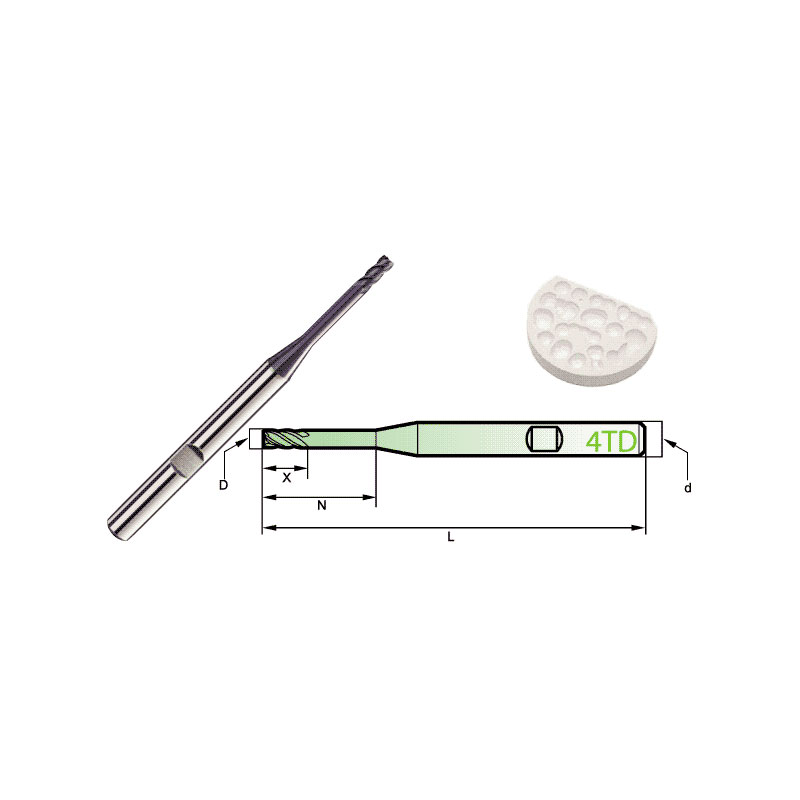
Carbide Roland CAD/CAM Burs
Product Information Origin Tianjing, China Brand MSK Number Of Blades 4 Product Name Dental Special 4-Blade End Mill Model D Number Of Blades Z X N L d 4TD2060HB 2 4 […]
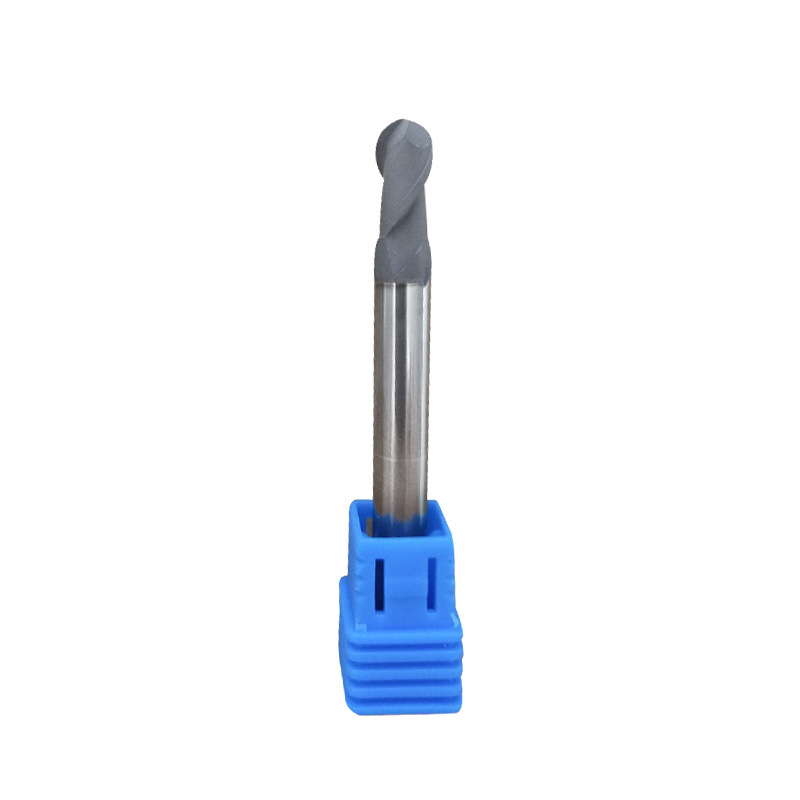
Diamond Coating Round Diamond Cutters
Product Information Origin Tianjing, China Series U Series Brand MSK Cutting Edge Form Helical Structure Ball Diameter (Mm) 3 Material Carbide Minimum Cutting Diameter At Th […]
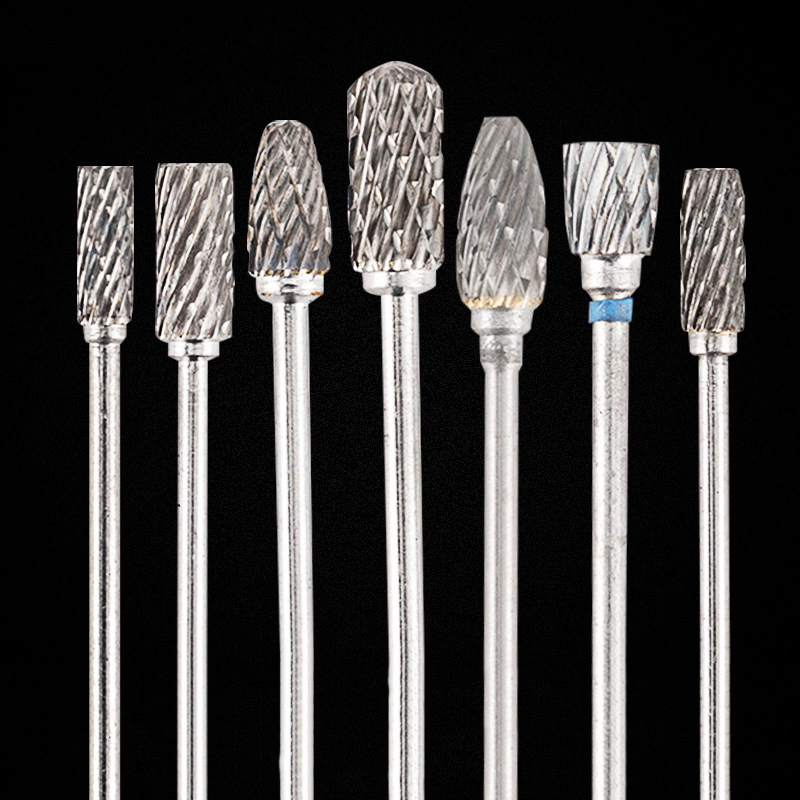
HP Deburring Carbide Burs
Product Information Brand MSK Material Tungsten Steel Model Grinding Head Custom Processing Yes Feature: The dental grinding head is made of tungsten steel with stabl […]
Post time: 2023-08-01
